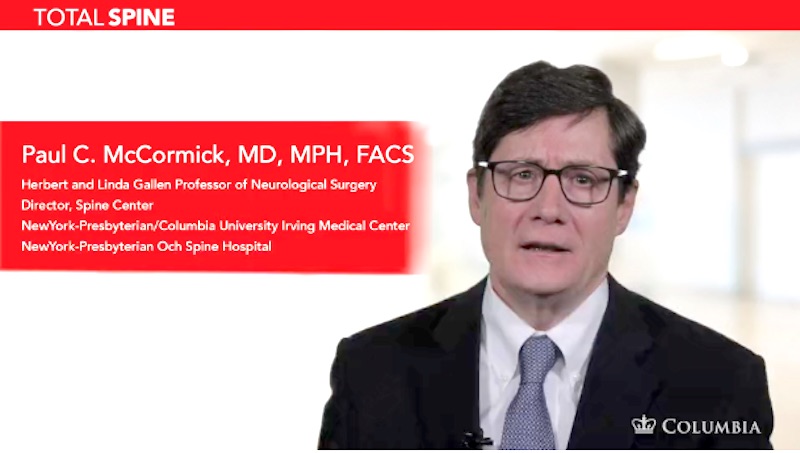 Everyone knows that modern medicine gives doctors and patients an incredible number of choices. But which choices are best for which patients? That’s something NOT everyone knows.
Everyone knows that modern medicine gives doctors and patients an incredible number of choices. But which choices are best for which patients? That’s something NOT everyone knows.
In fact, having so many choices means that even highly trained specialists can disagree about the best treatment choices for individual patients.
Complicated topics that experts disagree on are sometimes called “clinical controversies.” These topics showcase the many possibilities of modern medicine. They also highlight the knowledge and expertise required for a doctor to provide the best treatment for these complex conditions.
Neurosurgeon Dr. Paul McCormick, Director of The Spine Hospital at the Neurological Institute of New York, relies on this type of deep knowledge and expertise to provide the best treatment to his own patients. But he also uses that expertise to help the patients of other neurosurgeons.
At the most recent meeting of the Congress of Neurological Surgeons, Dr. McCormick organized a course called “Clinical Controversies: L4/5 Lumbar Spondylolisthesis.” He and a colleague gathered a handful of top specialists to present five of the optimal treatment options for a back condition called L4/5 lumbar spondylolisthesis.
Spondylolisthesis happens when one vertebra, or bone of the spine, slips forward on the one underneath it. A common location for this is at L4/5: the fourth and fifth vertebrae in the lumbar (lower) spine. The slippage can cause numbness, radiating pain, trouble walking or other symptoms.
Several treatment options exist, but choosing among them can be complex. Each case of spondylolisthesis is different. Each surgeon may have different specialized training and access to different technology. And the treatments themselves each have their own sets of advantages and disadvantages.
As a moderator of the L4/5 Lumbar Spondylolisthesis course, Dr. McCormick made sure that all the neurosurgeons who attended got a balanced view of each treatment—including that given during the post-surgical period, a critical time for patients. He made sure the neurosurgeons in the audience heard all the facts and the important factors to consider when forming a treatment plan with a patient.
In short, he provided the attendees with his own knowledge and expertise, plus the knowledge and expertise of other top specialists.
And that’s no clinical controversy—that’s clinical cooperation.
Learn more about Dr. McCormick on his bio page here.
Image credit: ©geralt/pizabay


